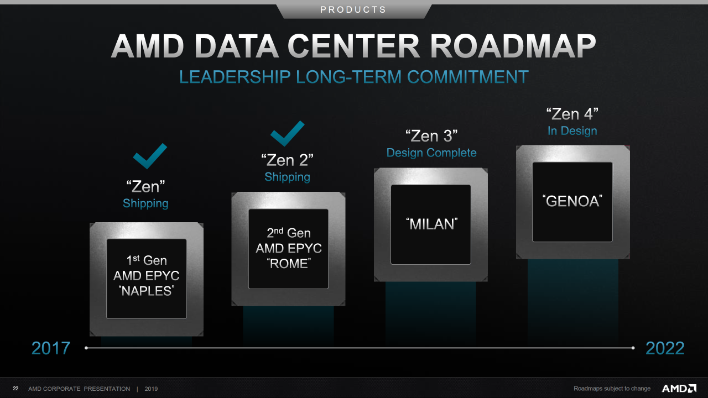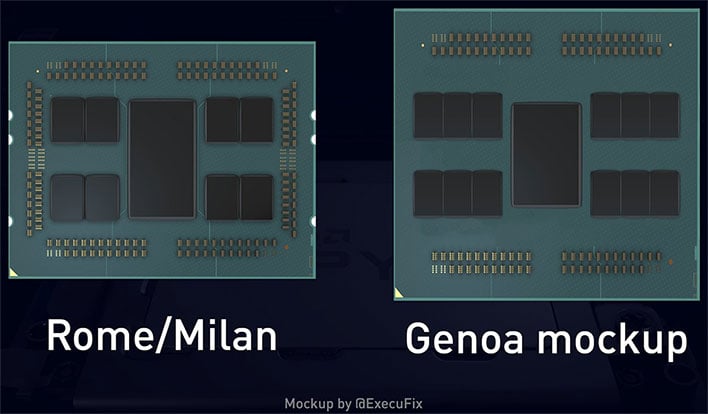AMD Zen 4 EPYC And Threadripper CPUs Rumored With Up To 128 Cores, 256 Threads
Now, new rumors allege that AMD is on track to deliver another big performance boost with Zen 4, along with a leap in core counts. It's now alleged that at least one variant of the Zen 4 architecture will feature a stunning 128 cores, which would result in 256 threads. If these rumors are accurate, AMD would have the equivalent of a nuclear bomb to unleash on the workstation/enterprise market with Zen 4.

Previous rumors suggested that Zen 4 would top out at 96 cores and 192 threads versus 64 cores and 128 threads with its predecessors. In this configuration, a flagship Zen 4 (Genoa) processor would have 12 CCDs, with eight cores per CCD (which is how we would arrive at 96 cores).
Zen 4 is set to become AMD's first processor architecture to use TSMC's 5nm process node. That smaller process node could provide the launching point for significantly ratcheting up core counts and performance (via increased IPC). In late 2019, Forrest Norrod, AMD's General Manager for the Datacenter and Embedded Solutions Business Group, seemed to leave the door open for such a breakthrough with its flagship processors. "There's a number of application areas that just continue to benefit from increasing core counts and increasing compute density," said Norrod.

On the performance side, AMD EVP Rick Bergman said last year that Zen 4 will deliver on a "long list of things, where you look at everything from the caches, to the branch prediction, [to] the number of gates in the execution pipeline. [Everything] is scrutinized to squeeze more performance out."
Threadripper and EPYC family members will reportedly adopt PCIe 5.0 (128 lanes). The processors will all support 12-channel DDR5-5200 memory, which provides a hefty boost in available bandwidth over existing DDR4 modules. If previous rumors are accurate, EPYC 7004 processors will use a massive LGA-6096 socket.
We must take all this information with a large grain of salt at the moment, but regardless, the battle between AMD and Intel in the high-end CPU market is about to get even more intense.


